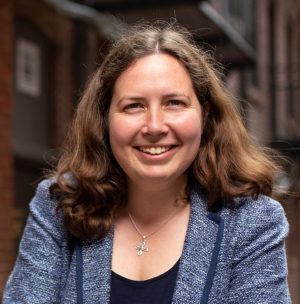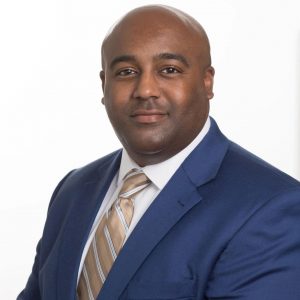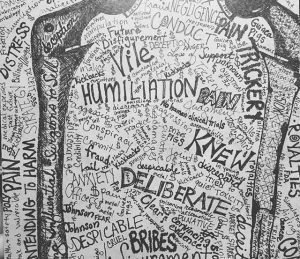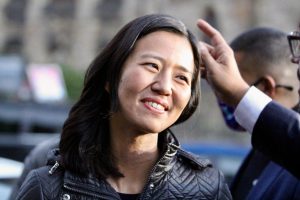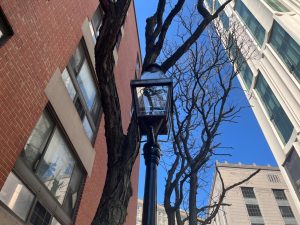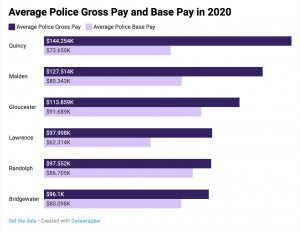City council race: Evandro Carvalho running for District 4
July 21, 2021
Evandro Carvalho, the current director of City Hall’s Human Rights Commission, is running for City Council in District 4, representing the neighborhoods of Dorchester and Mattapan and parts of Roslindale and Jamaica Plain.
Carvalho lives in the Ashmont area of Dorchester with his wife and two daughters. A product of Boston Public Schools, he attended Madison Park High School before studying at UMass Amherst and Howard’s School of Law.
Carvalho worked as an assistant district attorney before being elected as a state representative for the city of Boston. During his five years as a state representative, he focused on criminal justice and police reform.
“We have to show real results. We have to move the needle,” said Carvalho. “We have to close the gaps that exist, whether it’s wealth, education gaps, jobs, homeownership.”
Carvalho is running against at least 10 candidates, including Jacob Urena, Joel Richards, Deeqo Jibril, Nikkia Jean-Charles, Trevour Smith, William Dickerson, Leonard Lee, Troy Smith, Trina Ruffin and Josette Williams for the District 4 seat. The incumbent, Andrea Campbell, is running for Boston mayor.
The Scope spoke with Carvalho to discuss his campaign’s top issues and his plans to address them if elected. The following conversation has been edited for length and clarity.
What has your experience been living and working in Boston, and what motivated you to run for City Councilor?
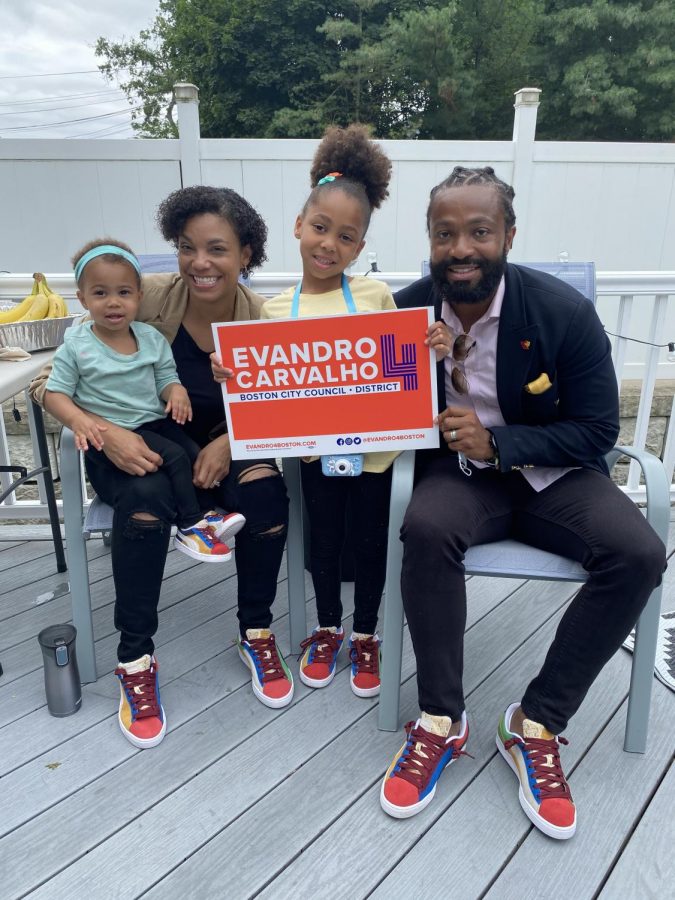
I’m running for District 4 really as to continue my life’s work of serving our community [and] serving the city of Boston, which I’ve done in various capacities over the past decade at least.
When I was 15 years old, my family immigrated to Boston [from Cape Verde], without [knowing] any English, just the clothes in our box, [and] like so many families do when they immigrate to the U.S. My mother was a single mother and made the difficult decision to come here to provide a better life for her kids. She often worked two or three jobs just to pay rent and feed us. My first job at around 15, 16 was cleaning offices with her in the Back Bay. Fast forward perhaps 15 plus years, I’m an attorney in the Back Bay in the same area that I used to clean.
I feel blessed, and too many of us do not get the opportunities we deserve through circumstantial or societal and community circumstances. Like some of my friends —
killed, or in prison, deported. I believe my mission in life has been to give back and figure out how more people like me get access and opportunities. Because really, I think some of my friends, if they got the opportunities that I got there, they would’ve still been alive….they wouldn’t be in prison.
How does your background prepare you for this job?
My experience says I hit the ground running. I know how to get things done. I’ve been in City Hall for the past two years, and I know how to get things done there. And District 4’s one of the highest needs districts in the city of Boston with…the folks who don’t get opportunities, don’t get access, don’t get their voice heard. It’s just another extension, another step for me to continue to serve the city. A key component of the job is policy creation and implementation of those policies. I know how to do policy, change laws and be a legislator. What you are [there to do] as a city councilor, at the end of the day, is to pass an ordinance to influence the way that the city and its policies are being created and implemented. At the state level, I think at this point, it’s close to 40 billion dollars that I was involved in advocating for my constituents. So I know the process, and I know what it takes to deliver for the community. I know how to get that done, certainly in terms of making sure that District 4 gets its fair share of the city budget, which is…close to four billion dollars now.
What are some of the key issues of your platform?
Economic empowerment, which is lifting up those that have been on the margins of not being successful in Boston or the country, [and] is essentially looking out District 4.
Homeownership is one of the things that I talk about often. It’s personal to me in a sense that my mother struggled to pay rent for a long time, and when she finally was able to save up to buy a home, we couldn’t afford it. Increased homeownership, quality job training, better education, financial literacy… just making sure that we have alternative paths to feed their families and get a quality job. I think it’s going to be a focus of mine.
Another space that I am going to be paying close attention to is the police reforms. We need to have a real discussion about white supremacy in the city, in the country. We need to have conversations about those things, but we also need to talk [about] real economics. How do we get the numbers higher? How do we get quality jobs for our people? And that’s what essentially my platform has been. Social justice is critical, and I’ll continue to focus on that. But number one, first day, I’m looking at economic justice. Where’s our 40 acres and a mule?
What are your primary plans for implementation of policies to support your major goals?
When we talk about homeownership and housing, there are a few things: one is to make sure that the inclusionary development program in the city is increased. If you’re building a 10 or more unit development in the city, right now, it’s 13% of it has to be affordable, but they’ll be increased that number to perhaps 20%, which is what Cambridge and Somerville currently do. The other portion is to ensure that we have more programs that help people buy a home for first-time homebuyers and keep the homes. So that’s another space that we need to grow — just partner with nonprofit organizations that help people buy homes, do financial literacy. The ingredients are there. We need just to keep educating the public about it and keep finding ways for people to buy homes.
I also think that particularly in the city of Boston… we don’t just focus on a path to college and higher education. We focus on kids coming out of school with training. My plan is to focus on changing the narrative. How do we get students to come out of high school and perhaps have already taken some college credits? My plan is that we also give a path to come out with a skill. We need to figure out how to educate and give not only education in the sense of math and science and all that but training.
There’s going to be an influx of federal funding through the American Rescue Plan… and we’re probably never going to get the sort of funding coming from the federal government, at least in our lifetime anyway. We should allocate a significant portion of that toward housing. We need to focus a large percentage of that on job training. But we could allocate a lot of it to help the small businesses that are coming out that are struggling out of the pandemic. What keeps a lot of our small businesses underwater is the technical assistance needed to apply for grants and apply for government funds. And often, they don’t have the capacity to do it; they can’t meet the deadlines, they’re not writing it in a proper format. So I think streamlining some of that information would be beyond helpful.
Is there anything else that you want to share that I didn’t ask you?
The other key part, and to be honest, my favorite part of the job as a state rep was constituent services, which is access to government. So to me, constituent services and getting people access to City Hall, and bringing City Hall closer to our people in District 4 will be the other step. We need to keep pushing civic engagement in our communities, get folks out to vote and continue to have people involved in the decision-making of our communities. If nothing else, this is why I get up in the morning.


